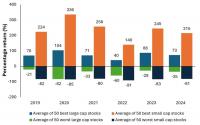
Healthcare is the largest sector within the Collateralised Loan Obligation (CLO) universe. Portfolio manager Denis Struc and David Huang explore how to navigate this environment for CLO investors.
Last week, US President Trump announced a sweeping investigation into possible tariffs on pharmaceuticals – a sector that, until now, had largely escaped the trade measures levied on automobiles, copper, and other industries. The duties under consideration, pencilled to take effect in 12 to 18 months, would apply across the entire drug-development chain, from active ingredients to finished products and, in characteristically hyperbolic fashion, could be set as high as 200%.
The subsequent sell-off in pharmaceutical shares was brief, suggesting that markets have largely looked through the news. Although some observers view the announcement as a negotiating tactic aimed at pharmaceutical companies outside of US, as active CLO investors, we see it as a prompt to undertake a thorough review of the exposure to pharmaceutical borrowers within the loan collateral backing European CLO investments.
Healthcare: the largest sector in the European CLO universe
An examination of the underlying loans in European CLOs shows that roughly 16.5% of collateral comes from healthcare companies (Figure 1). Within that headline figure, the healthcare sector is highly diverse. Of this healthcare exposure in European CLO collateral, approximately 9.1% is tied to Healthcare Services & Products, 6.4% to Pharmaceuticals, and the remaining 1% to Biotechnology.
Not every subsector would be affected to the same degree by a potential global tariff dispute. Healthcare-services businesses, such as care-home operators and hospital groups, are largely domestic in focus, deriving most revenue locally rather than from the US. They also benefit from structurally growing demand as populations age in Europe.
More broadly, many European healthcare companies have already taken steps to prepare for possible tariff-related disruption. The sector’s sophisticated supply chains provide the flexibility to adapt to shifting trade dynamics, whether by sourcing inputs from alternative regions or by re-engineering manufacturing and distribution networks to mitigate tariff impact.
Spotlight on pharmaceuticals
Because the US investigation is currently aimed squarely at pharmaceuticals, we have taken a closer look at this exposure within the European CLO collateral universe.
To read our analysis on the impact of pharmaceuticals and how you can build resilient portfolios through an active approach, click here to read the full article.







